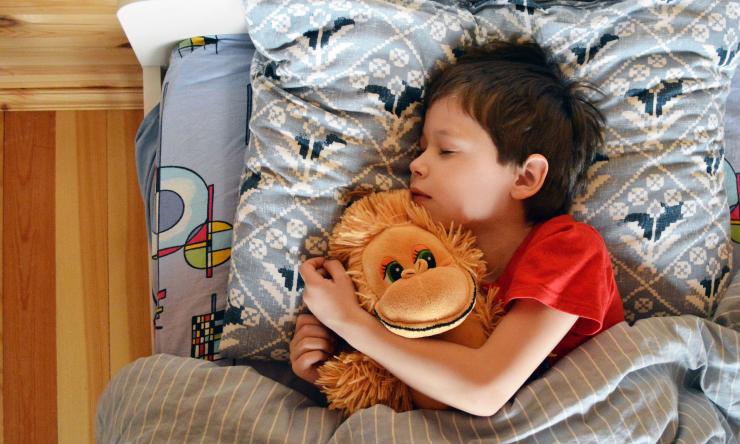Getting kids on a regular sleep schedule after virtual year
Last year when COVID-19 first struck, students had to adjust to attending school online or on a hybrid schedule. While a virtual schedule might have allowed students to sleep in a little later, returning to school in person requires waking up earlier to get ready for the day. An expert with Baylor College of Medicine provides tips on how to help students make the adjustment this school year.
“I think the biggest concern is that the virtual environment of last year led to some unstructured schedules since it did not need a full morning routine that requires waking up early, getting dressed, preparing lunches and transport to schools,” said Dr. Philip Alapat, assistant professor of sleep medicine at Baylor. “When we remove all those things, students are just able to get out of bed and jump on to the computer to begin school.”
Along with the end of summer break, there is no denying that returning to a back-to-school sleep schedule this year could be challenging. Alapat offers tips on how to make the transition easier for both kids and parents.
The first step is to know the recommended hours of sleep kids and teenagers need per age group:
- Ages 3-5: 10-13 hours
- Ages 6-13: 9-11 hours
- Ages 14-17: 8-10 hours
Alapat warns that sleep deprivation has been linked to poor performance, mood changes and even car accidents for those who drive.
“What we have found is that children have some decrease in function when they are sleep deprived,” he said. “Not just being tired but also in academic function and their ability to learn and process information. When we are able to provide our children with the adequate amount of sleep, all these things tend to function better.”
Set new habits before the school year begins
If possible, Alapat recommends establishing a new bedtime and wakeup time at least a week before classes begin. This will help students adjust to the first few days of school when they need to wake up earlier.
“The goal would be to start this type of process before school starts to establish a bedtime routine that will allow a reasonable amount of sleep and an earlier wakeup time,” he said.
Shift the new wakeup time in 15-minute increments
Since it can be challenging to set a new sleep schedule after the summer break, Alapat recommends slowly moving the wakeup time earlier by setting the wakeup alarm earlier by 15 minutes each day.
“When you move the wakeup time earlier by 15 minutes each day, you allow your body to adjust more comfortably,” Alapat said. “You still want to ensure the adequate amount of sleep is reached, so if a child needs 9 hours of sleep, then you need to count back 9 hours so that the bedtime is at the appropriate time to allow for the proper amount of sleep.”
Maintain a routine sleep schedule
Although quarantine and summer break has thrown off normal sleep schedules for many, students should keep a fixed bedtime and wakeup time for school. Sleeping in during the weekend or going to bed late throughout the week can make it difficult to fall asleep or wake up earlier when necessary, Alapat said.
“Keeping the same schedule every day is more reasonable,” Alapat said. “If you jump back and forth by waking up at 6:30 a.m. one day and then at 8:30 a.m. the next day, it can translate to more daytime sleepiness, which can lead to poor school performance.”
Avoid naps and caffeine in the afternoon
Late-afternoon naps and indulging in caffeinated beverages like soda and energy drinks in the evening can impair the sleep quality, especially when trying to go to bed at a reasonable time, Alapat said.
“Avoiding unintended daytime sleep and late afternoon naps will also help facilitate your body being able to fall asleep at night,” he said.
If you are still having trouble falling asleep at night, try to avoid lying in bed. Alapat recommends getting out of bed and doing something relaxing, preferably outside the bedroom until you feel sleepy enough to return to bed.
Limit screen time
It is tempting for kids to watch television or be on their phones before bedtime, but this can keep the mind active and make it more difficult to fall asleep. Alapat recommends that parents assist their kids to wind down without screen time for at least 30 minutes before bedtime in a cool, dark and quiet environment.
Set an example
Now that vaccines are more available for adults, many are making the transition to return to the office in person. Alapat adds that it is just as important for parents to work on keeping a regular sleep schedule to help promote healthy sleep habits.
“Perhaps working together as a family will help the set an example for kids and make the transition a little easier,” he said.










